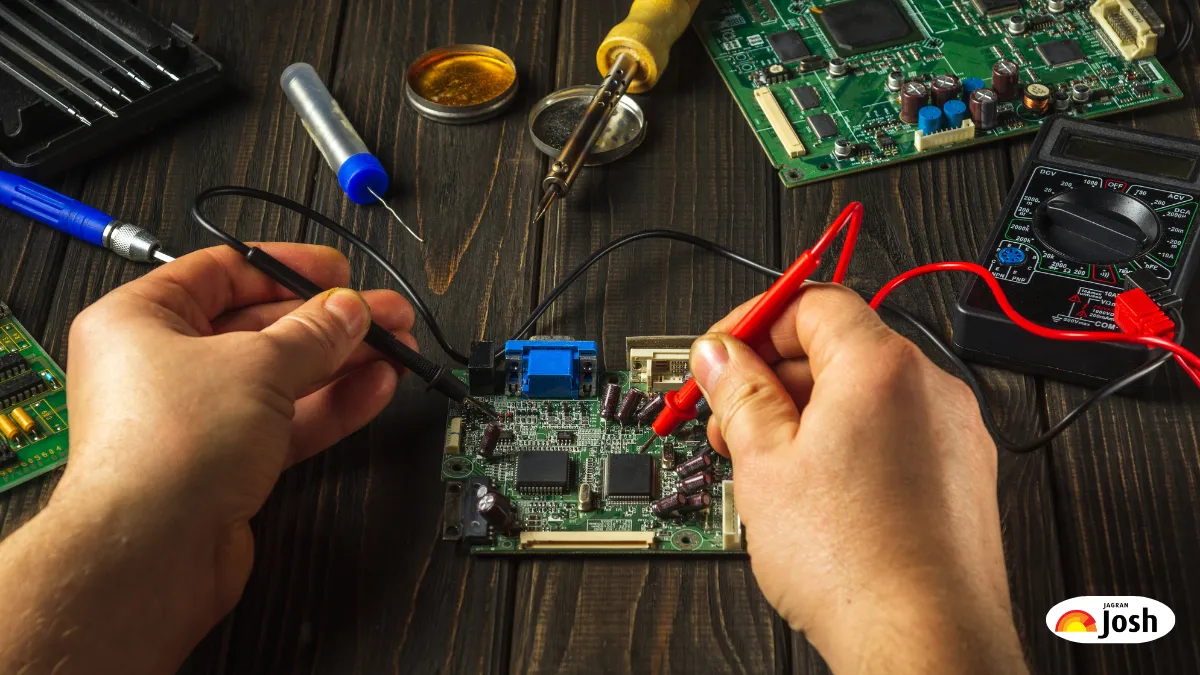The artist Nam June Paik once said, "You can't have art without electricity." That's totally true for electrical engineering—it's where creativity and technology meet, making it an art form all its own. Electricity is the power behind all modern technology and art. If you want to master this field, you must study electrical engineering.
But when students choose, they often get confused between electrical and electronic engineering. This article will clearly explain the difference so you can choose the right career path.
Also check: BTech vs BCA: Best Choice for Future Careers in AI, IoT, and Blockchain
What is Electrical Engineering?
Electrical engineering is the job of designing and building anything that uses electricity, from machines to large power systems. Electrical engineers work on huge topics like power plants, how electricity changes forms (like in motors and generators), and making sure all the parts work together smoothly. They also get into digital design, communication systems, and computer networks. Basically, they make sure the energy and systems that run our daily technology actually work.
What is Electronic Engineering?
Electronic engineering is a smaller part of electrical engineering that focuses on designing and building small circuits and devices. Electronic engineers work with tiny parts, like resistors and capacitors, to make everything run well. They use ideas from electrical engineering to build, test, and fix the electronic gadgets and complex systems we use every single day. Basically, they are the ones who bring the ideas for your newest phone or gadget to life.
The easiest way to remember is that Electrical engineering came first and is the main subject, while Electronic engineering grew out of it later.
Difference between Electrical and Electronic Engineering
● Application
Electrical Engineering is the study of BIG things that handle strong power, like power plants, huge motors, transformers, and the high-voltage lines that move electricity across cities.
Electronic Engineering is the study of SMALL devices that handle weak power, like the tiny chips, circuits, transistors, and the parts inside radios, TVs, and computers.
● Area of Focus
Electrical engineering handles big systems and high voltage.
Electronic engineering deals with small devices and low voltage.
● Field of Study
Electrical Engineering mostly deals with power, control systems, and how electricity and magnets work together.
Electronic Engineering mostly deals with digital parts, analog circuits, tiny micro-chips, and light-based electronics.
● Concepts
Electrical Engineers focus on analog stuff—this is like the smooth, continuous flow of things such as voltage, current, and raw power. They build big infrastructure like power transformers and generators.
Electronic Engineers focus on digital stuff—this is like on/off switches, logic gates, and micro-chips. They work on tiny circuits that make devices smart.
Electrical and electronic engineering often seem like the same thing, and people use the names interchangeably. This can be confusing! Just remember that electrical engineering is the big field that covers everything, including electronic engineers and those who work with tiny micro-chips.
Every electronic device is also considered electrical. But the reverse is not true: you have many electrical devices that are not electronic.
What Electrical and Electronics Engineering Have in Common?
Electrical and electronic engineers often work side-by-side on the same projects, whether they are creating new products or making old ones better. Because they team up so much, their jobs and what they learn in school often overlap and look very similar.
-
Foundation
The most important thing to remember is that both electrical and electronic engineering classes start with the exact same basics: you must first learn all about electricity and electromagnetism. These ideas are the foundation for everything else you study.
-
Job Roles
When they start their careers, electrical and electronic engineers often do the same kinds of tasks. For example, both might work together to design and test a new electronic gadget. This shows how much their jobs overlap.
-
Maths and Physics
To succeed in both electrical and electronic engineering, you absolutely must be strong in Math and Physics. Key math topics like calculus and algebra, plus the study of electricity and magnets (electromagnetism) in physics, are the essential building blocks for everything you do.
-
Salary
Fresh graduates in both electrical and electronic engineering in India usually start with a salary of up to ₹5 lakh per year. There is almost no difference in the starting pay between the two jobs.
Also check:
